T ec h African Revolution


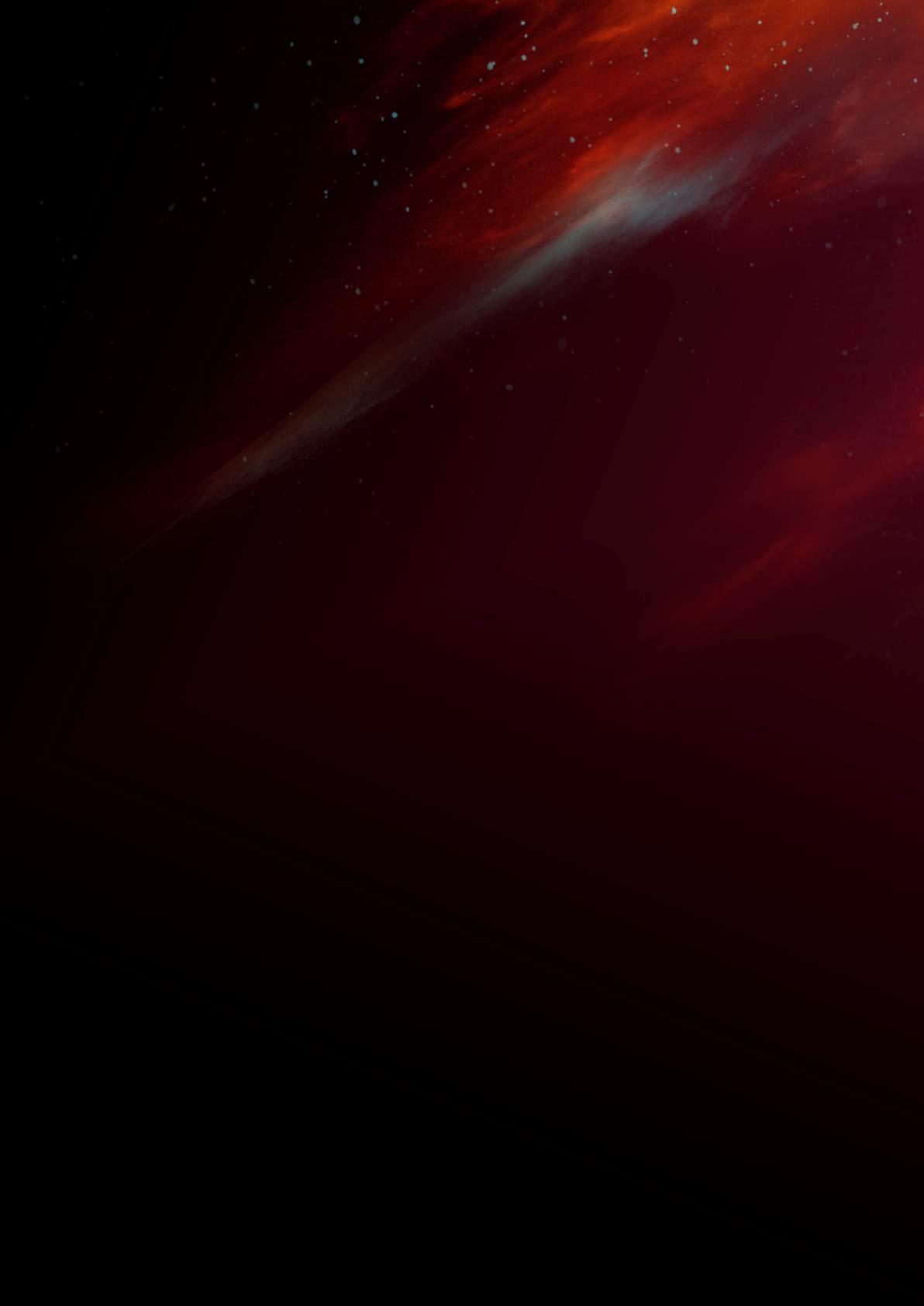
N5,000 / $12 / £10 AFRICAN DIGITAL DEFENDERS ZAMBIA NEWLY LAUNCHED MARKETING CAMPAIGN AFRICAN BLOOD JEWELLERY ISSUE 107 / JAN. 2023


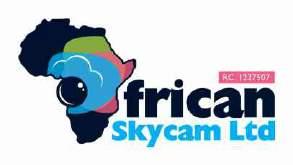
H.E Paballo Makhetha (South Africa)
Mobolaji
Abiodun
3
234803 397 5746 +44746 6234 902


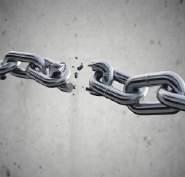



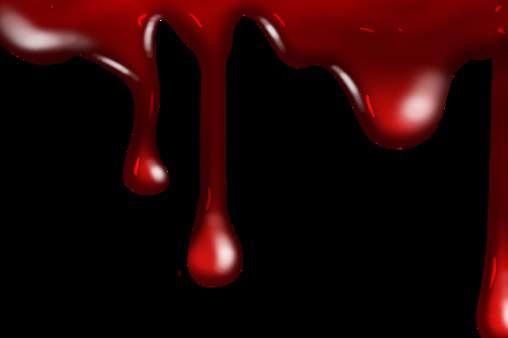



4
A
It has been estimated that only approximately 8% stick with New Year's Resolutions for the entire year. Happy New Year dear readers, we all want changes but we are not prepared for the changes we desire.
Artificial Intelligence is a technology that continues to grow rapidly every year. In 2023, AI will have an estimated worth of $42 billion.
This suggests that soon enough, AI will be more prevalent than ever before, taking over many of our daily tasks, are we ready for the dramatic changes. It is also reported that this year 2023, AI will have reached the point where it will be the single most game-changing invention in the history of humankind.
AI: the technology of the future is here already and it would change the way we do things one way or the other; from investing using AI; to fake news to highly efficient self-supervised learning for vision, speech and text; transportation, communication, trade and finance, Medicine, entertainment, virtual task.
From smart phones to chatbots, artificial intelligence is already ubiquitous in our digital lives globally. You just might not know it yet. The momentum behind AI is building, thanks in part to the massive
amounts of data that computers can gather about our likes, our purchases and our movements every day. And specialists in artificial intelligence research use all that data to train machines how to learn and predict what we want or detest.
The global average cost of a data breach increased 2.6% from $4.24 million in 2021 to $4.35 million in 2022 the highest it’s been in the history of IBM Security’s “The Cost of a Data Breach Report.” According to reports
While the financial costs associated with a data breach are certainly high, the real impact on businesses run much deeper: reputational loss, legal liability and loss of business and consumer trust. Cyber-attacks and data breaches are not going away if anything, they are only increasing both in frequency and severity.
It's vital that organizations create and test incident response playbooks to increase cyber resilience. As we enjoy the benefits of AI, we must also prepare for the dark side. This edition is dedicated to encouraging and showcasing AI in Africa and the need to be prepared for the desired change we want.
NOAH AJARE Editor in Chief


6 2023
TECHNOLOGIES TO DE-ESCALATE
INTERSTATE CONFLICTS IN AFRICA TENSION AND VIOLENCE AI DEPLOYING
Centuries ago and this present times in some parts of Africa, Africans are guided on a path to their future through the consultation of Ifa (an oracle) who in turn relates to Orunmila regarded as the supreme being. When a child is newly born, the entire family and parents would agree to take the child to a trusted Ifa priest who can never go wrong in his predictions to help seek and ask what the future of the child is.
Using Ifa as a medium to communicate with Orunmila, the Ifa priest tells the family whether the child would be doomed for life or fortunate. The good news comes when Ifa as instructed by the Orunmila proffers a solution to the situation of the child if there is a need.
This is just the same as the advent of Artificial Intelligence mostly referred to as AI. However, rather than getting its source from Orunmila, it renders accurate future predictions from the current situations facing society and it is an invention that has resulted from the evolution of scientific research.
Artificial intelligence is the simulation of human intelligence processes by machines, especially computer systems. Specific applications of AI include expert systems, natural language processing, speech recognition and machine vision.
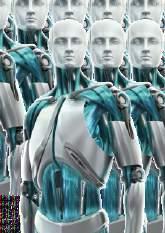
In simple terms, AI systems work by ingesting large amounts of labeled training data, analyzing the data for correlations and patterns, and using these patterns to make predictions about future states. In this way, a chatbot that is fed examples of text chats can learn to produce lifelike exchanges with people, or an image recognition tool can learn to identify and describe objects in images by reviewing millions of examples.
AI programming focuses on three cognitive skills: learning, reasoning and self-correction.
The Learning process is an aspect of AI programming that focuses on acquiring data and creating rules for how to turn the data into actionable information. The rules, which are called algorithms, provide computing devices with step-by-step instructions for how to complete a specific task.
The Reasoning process is an aspect of AI programming that focuses on choosing the right algorithm to reach the desired outcome.
The Self-correction process is an aspect of AI programming designed to continually fine-tune algorithms and ensure they provide the most accurate results possible.


7
INTRASTATE CONFLICTS IN AFRICA OVER THE YEARS
Intrastate conflicts are defined as ‘violence between or among one or more advantaged or disadvantaged minority or majority groups, and one or more of these groups and the political/juridical state, to gain either a greater share of limited resources or control or autonomy or both over the territorial state’. Often, intrastate conflicts are multifaceted, falling under the classification of ‘armed’ where there is a resort to the use of armed force resulting in at least 25 battle-related deaths.
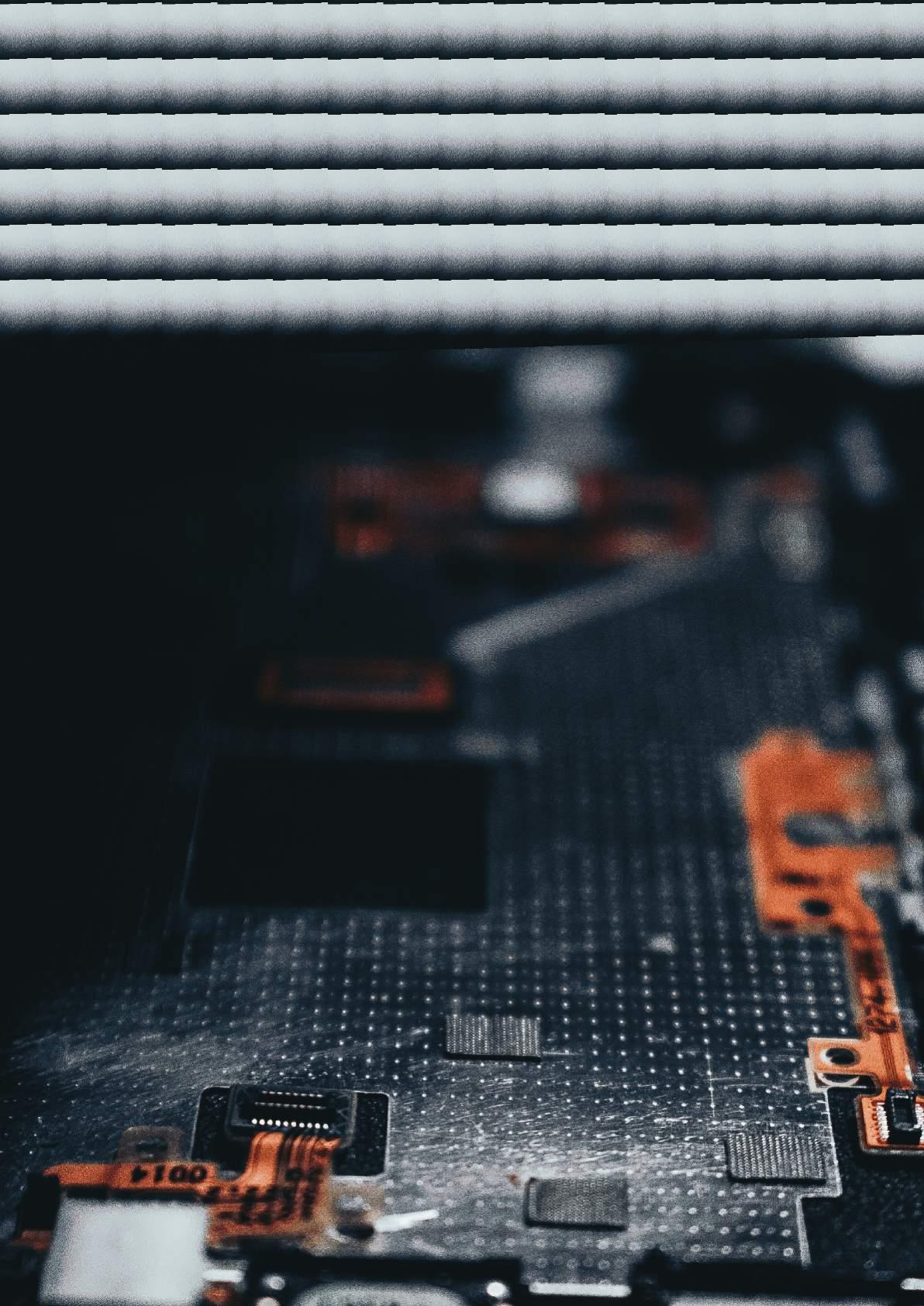
There have been a whole lot of conflicts among African states, mostly due to the difference in beliefs and culture. No doubt, Africa is a diverse continent, which makes it a bit hard for some groups to coexist together. Their intense conflict is not a new phenomenon and it has been occurring for years. Armed conflicts in Africa during the 20th century caused an enormous loss of human life, the collapse of socio-economic systems, and the degradation of health and education services across the continent. From the Nigerian civil war to the Somali civil war. These conflicts submitted civilians to intense physical and psychological trauma that negatively impacted development throughout many African nations. Some major interstate conflicts include:
1991 SOMALI CIVIL WAR
In 1991, a coup ousted dictator Mohammed Siad Barre, President of the Somali Democratic Republic. This shift in the balance of power sparked a twenty-plus-year civil war that killed as many as one million Somalis via violence, famine, or disease. Following Barre’s removal from power, the
Somali Democratic Republic was divided into two opposing parties, the Somali National Movement in the North and the United Somali Congress of the South. This separation made it difficult to achieve control of the conflicting factions because no one ruling entity was recognized by all Somalis; those living in the north would not recognize authority from the southern faction, and those in the south opposed leadership from the Somalis in the north. The lack of a central government forced the U.S. to close its embassy that same year.
1967 NIGERIAN CIVIL WAR
After Nigeria gained its independence from Britain in 1960, the country was divided into ethnically defined regions the Igbo people occupied the southeast, the Yoruba the southwest, and the Hausa and Fulani the north. Tensions grew as the nation’s military took power following the achievement of Nigerian independence and fighting broke out among the regions, resulting in as many as 30,000 Igbo deaths at the hands of the Yoruba. On May 30, 1967, Colonel Emeka Ojukwu seceded the Igbo territory, declaring it to be the Republic of Biafra. With the help of Great Britain, the Nigerian federal government reacted quickly, gaining control of the oil-rich southeast coast and blockading supplies to the region, causing severe famine and leading to the deaths of nearly two million civilians and 100,000 military personnel. On January 15, 1970, Ojukwu handed over control of the Biafran government to Major General Philip Effiong of the Biafran Army and fled the country with his family. Effiong subsequently surrendered to the Nigerian military head of state, General Yakubu Gowon, abruptly ending the 30 months of civil war.
8
THE LORD’S RESISTANCE ARMY INSURGENCE OF 1987
Led by the infamous Joseph Kony, The Lord’s Resistance Army, LRA, is responsible for the longest-running rebel upheaval in Uganda and its neighboring countries, resulting in the displacement of nearly two million people and the deaths of thousands. The LRA originated in 1987 with the rebellion against Yoweri Museveni’s leadership in Uganda when Kony dubbed himself a spiritual leader and the liberator of the Acholi people of northern Uganda. Since then, Kony and his regime have become notorious for abducting and forcibly recruiting children, and the LRA has kidnapped more than 60,000 civilians and forced them to serve as soldiers and sex slaves. The Ugandan government has tried several times to hold peace talks with the LRA, but it has thus far been unsuccessful in both opening dialogue and taking military action against the group.
ERITREAN-ETHIOPIAN WAR OF 1998
The two-year war between the neighboring countries of Eritrea and Ethiopia was triggered over a border dispute and claimed approximately 80,000 lives. The war began on May 6, 1998, when military and police from both countries exchanged fire in a rural area near the disputed border, and ended in 2000, between May and June, after the two countries were able to negotiate a cease-fire agreement called the Algiers Peace Treaty.
The intrastate war from Africa’s history helped shape its past, and its intense physical and psychological effects on humans could be felt long into the future. These wars and a whole lot more have been reoccurring.
DEPLOYING TECHNOLOGIES TO DEESCALATE TENSION AND VIOLENCE
AI in its programmed form can be said to be a foreseer of future happenings. And judging by the circumstances surrounding the situation the technology would be set to analyze, a probable guess on what might ensue later on is inevitable.


Africa's intrastate conflict has worsened over the years, and there is a clamour for an urgent rise in any help the government can get in resolving the persistent problem.
Deploying the use of AI would help prepare for a such situation without catching anyone off guard. Solutions would be thought of and maybe intrastate conflict in Africa would be brought to an abrupt halt without putting innocent lives at risk and development would be more intensified as time goes on.
The use of technology in resolving tension and violence is an expensive means of approach to resolving impending problems.
However, African Peace Magazine urges African governments on the relevance to be more intentional in saving the continent from collapsing at its own hands.
9
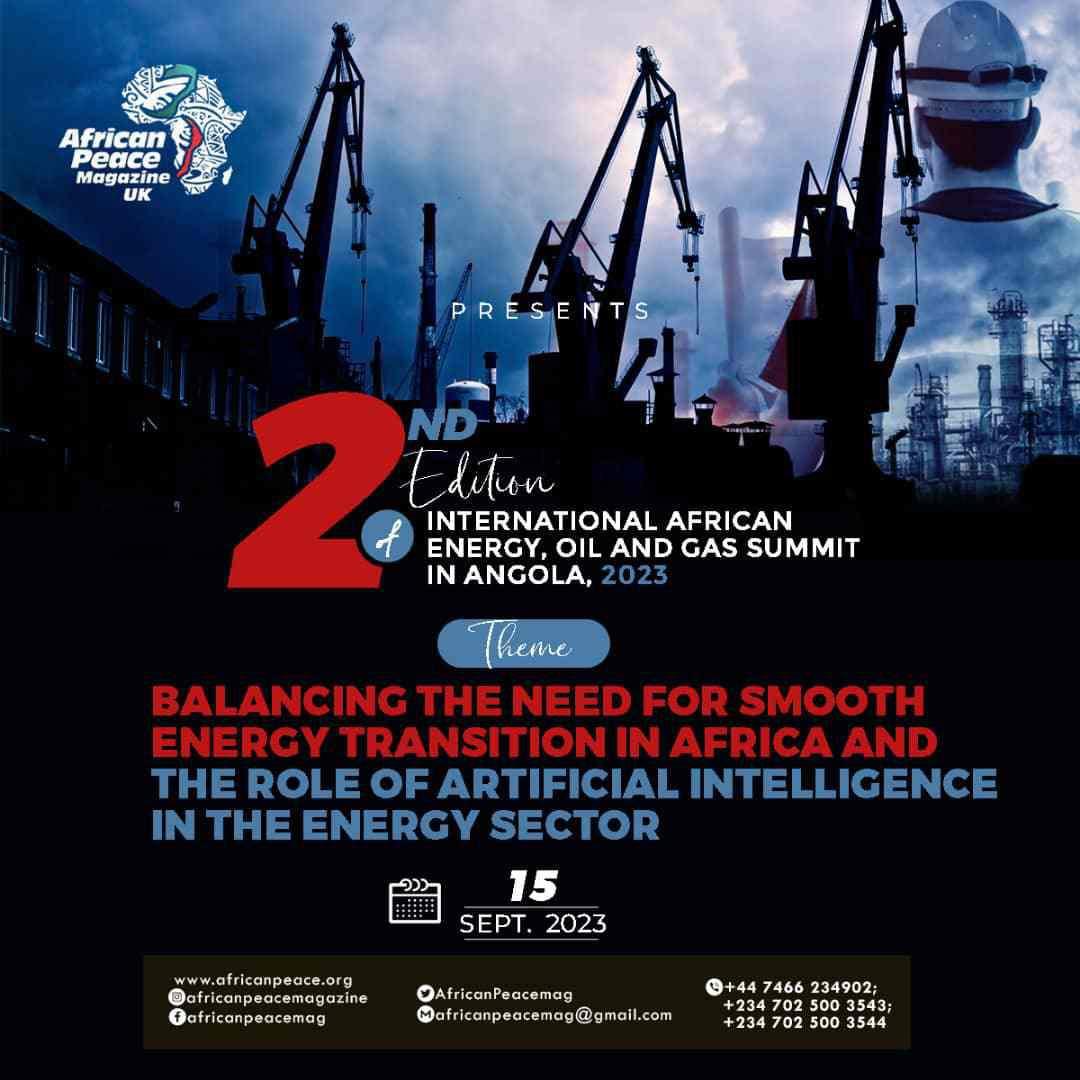
10

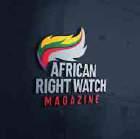


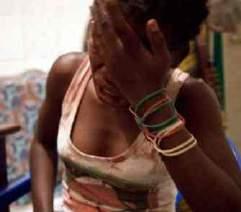

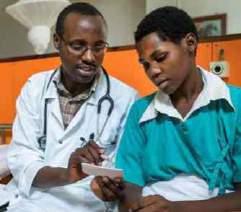
11
AFRICAN
DEFENDERS
With innovation upping it's game on a daily basis, the advent of digital defenders in Africa didn't come as much of a surprise. It had been going round continents and did eventually reach the shores of Africa. As the world gets to connect regardless of ones location, there has been an uprise in different form of threat and abuses people encounter online. Digital defenders are Imbibed in finding ways to which online users conquer web threats. Many African countries in Africa are experiencing a closing of civic space, a clause in the freedom of citizens to openly discuss politics, criticise government policies and to take an active part in key decisions that affect their health, education, liberty and livelihoods.
The Digital Defenders Partnership (DDP) was formed in 2012 by the Freedom Online Coalition (FOC). The aim of the DDP is to protect and advance internet freedom, and to keep the internet free from emerging threats, specifically in repressive environments like Africa. They coordinate emergency support for individuals and organizations to protect critical Internet users such as – human rights defenders (HRDs), including activists, bloggers, civil society organizations, journalists, and other users of Information and Communication Technologies (ICT) to defend human rights. They take a people-centered approach, focusing on their core values of transparency, human rights, inclusivity & diversity, equality, confidentiality, and freedom. The main aim is to keep internet free and open.


The DDP has three different types of funding that address urgent emergency situations, as well as longer-term grants focused on building capacity within an organization. Furthermore, they coordinate a Digital Integrity Fellowship where organizations receive personalized digital security and privacy trainings, and a Rapid Response Network program.They particularly encourage women and women’s organizations, ethnic minorities, and LGBTI+ persons to apply for their grants.
Internet has become an indispensable tool for citizens all over the world especially Africans to express their views and fight for their rights. Before the creation of internet, most Africans are forced to keep mute over the happenings that they don't feel comfortable with. Mostly due to fear of the outcome of their expression. However, the invention of the internet has given room for freedom of speech and expression to be instigated. But online privacy and freedom are becoming less regarded as individuals are being restricted from some online participation, that includes voicing out their thoughts.
Technological advances have helped in the procurement of global collaboration and social innovation.
However, they have also assisted states and groups to repress, survey, and censor human rights defenders in unprecedented ways. According to a new report cyber laws are being used to quash freedom of expression and pursue critical voices on social media and websites in Africa.

12
People are increasingly arrested for publishing, sharing, even “liking” content online. And authoritarian governments are using more sophisticated ways to curb freedom of speech. An instance was during 2021 when the Nigerian government banned Twitter, depriving its citizens of access to the platform where most of their truths are being expressed. While also giving them conditions on what to post after the ban lifting.
Most African youths have indulged in the use of the digital space to voice out their inconveniences and what they consider as appropriate to be done in some situations.
The institute of development studies pointed out that, In Ethiopia and Zimbabwe, when the government arrested journalists and banned public demonstrations, young people responded creatively, using the internet and mobile phones to open civic space. Using SMS, social media, encrypted messaging and even satellite TV to connect, organise, develop policy alternatives and successfully challenge the government narrative.More African countries have been able to get through to their government through the use of the internet. Such case is the #bringbackourgirls hashtag movement in Nigeria.
African digital defenders have been able to address some major human right concerns, for example, summary executions, torture, arbitrary arrest and detention, female genital mutilation, discrimination, employment issues, forced evictions, access to health care, and toxic waste and its impact on the environment.
Defenders are active in support of human rights as diverse as the rights to life, to food and water, to the highest attainable standard
of health, to adequate housing, to a name and
a nationality, to education, to freedom of movement and to non-discrimination.
Even though these are still somewhat not so evident in most African countries some defenders sometimes address the rights of categories of persons, for example women’s rights, children’s rights, the rights of indigenous persons, the rights of refugees and internally displaced persons, the rights of lesbian, gay, bisexual, transgender and intersexual people, the rights of persons with disabilities.
The mission of African digital defenders is to provide a holistic response to digital threats and create resilient and sustainable networks of support to human rights defenders.

They work on democratic transformation in order to increase the participation of people in the decision-making that shapes their lives and to strengthen good governance. They also contribute to the improvement of social, political and economic conditions, the reduction of social and political tensions, the building of peace, domestically and internationally, and the nurturing of national and international awareness of human rights.
In essence, the gathering and dissemination of information, advocacy and the mobilization of public opinion are often the most common tools used by digital defenders in their work. They also provide information to empower or train others. Making positive impacts and changes in the continent.
13









14
What Zambia Wants You To Know About Its Newly Launched 2023 Marketing Campaign
The Zambia Tourism Agency (ZTA) is targeting over 1.5 million international tourists as part of its 2023 marketing plan to accelerate recovery in the southern African nation.

The Agency, on Tuesday launched the 2023 Marketing Plan for Destination Zambia, which is an initiative to create integrated and holistic strategies to promote and boost demand for the country’s Tourism through increased arrivals. It sets out the general outlook and perspectives for the overall marketing programme for Tourism in Zambia, and strategies and priorities to achieve a successful and sustainable tourism destination.
ZTA is optimistic of sustained growth driven by increased budgetary support from
Government for marketing activities, and VISA waiver for specific source markets and increased consumer confidence in the tourism products.
Speaking at the launch of the marketing plan, Zambia’s Minister of Tourism and Arts Rodney Sikumba said the launch of the country’s marketing plan focuses on repositioning the tourism sector for sustainable growth.
”I am happy to be here with you today and launch the country’s marketing plan that focuses on repositioning the tourism sector for sustainable growth. The need to place tourism as a key instrument in Zambia’s transformational and developmental agenda remains important for the government and we have demonstrated our resolve to
make tourism a catalyst for economic growth through various pronouncements that support the requisite conditions to make tourism flourish in our country.” Rodney Sikumba said.
“The new dawn government has provided an enabling environment for more private sector participation and this has been demonstrated through the creation of the private sector dialogue forum, a platform that serves as a critical link between the government and the private sector. This great initiative by the government should give us the impetus to explore new market opportunities to enhance and stimulate growth in the economy.” the minister noted.
15
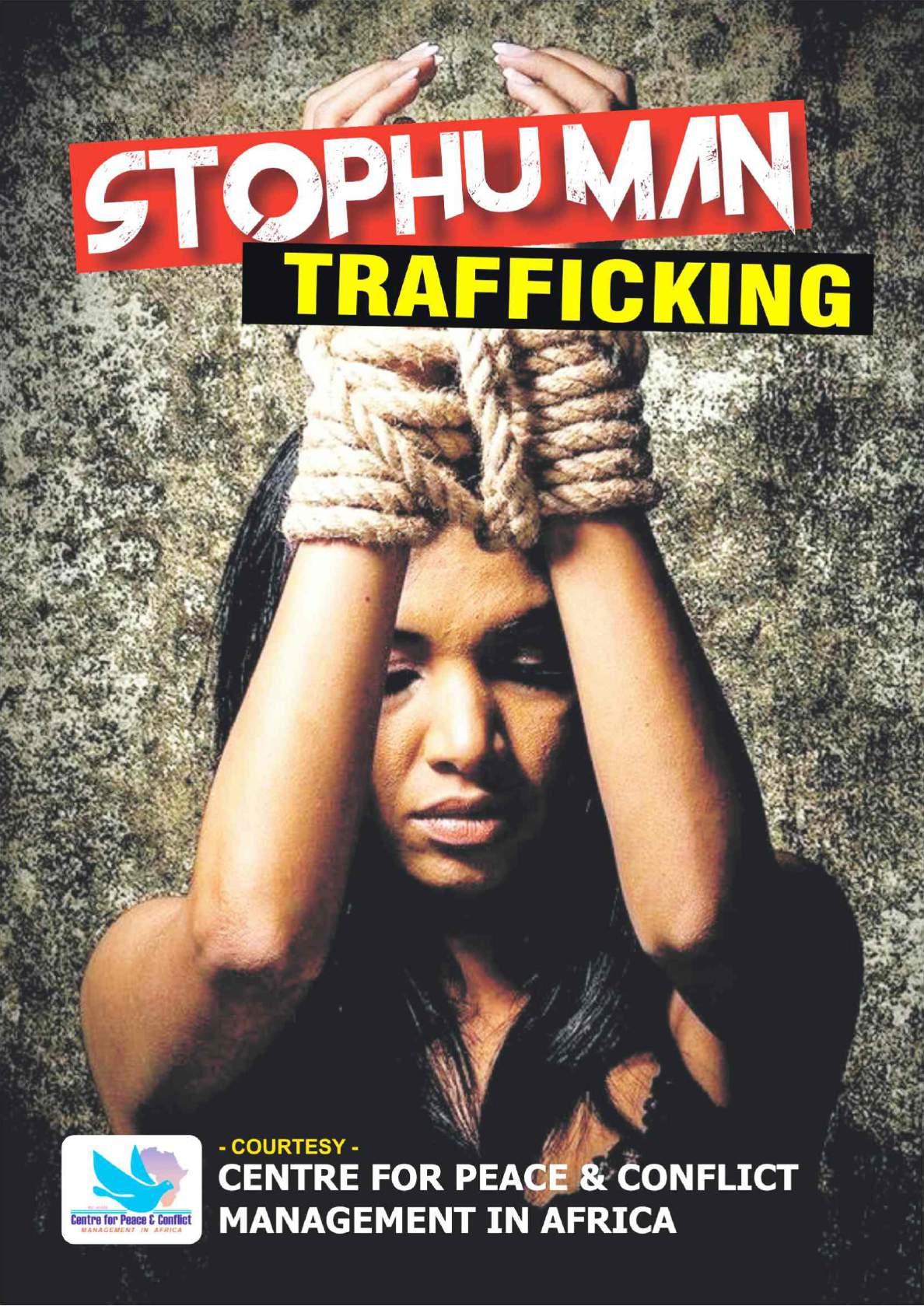
ProfM.TLadan’s Interventions
Prof M.T Ladan's Interventions on the 8th of December 2022 morning session of the UNHCR High commissioner's dialogue on Development Cooperation and protection challenges of displaced population. Held in the auditorium of the CIC Geneva Switzerland.

I will like to start with the area posting raised by the moderator, that is, how to coordinate the humanitarian and financing. Yesterday I was at the EU special section on government operation and I am glad that the director rose this question again which shows the consistency at this dialogue and the need to move forward and straight to the point. Ideally, the point I’d like to raise is, in the next three years, if we really want to forge meaningfully the government might help us. Then we must actually really have a guiding framework on what guiding principle are we moving this particular effort. In addition, the starting point is to provide
guidance on the human rights and development corporation nexus and the reason why the human rights and development corporation nexus is very important, is because it is a responsibility approach it raises three fundamental questions and it provides both the private sector and the development actors to provide answers to those questions before the investing. That is actually one. Who is responsible for what and in relation to who? That is a good point to raise to the human rights development approach and in the context of Africa, we already have a continental, legal binging duty for the first time in the whole world and that is The African Union Kampala Convention of the provision of assistance to IDPs and that actually is a human right based instrument except probably for one country, almost all the African Countries.
17
Happy0 Th



GRACE YEMISI

Her Excellency ADESINA




Happy birthday to an amazing personality, we pray you celebrate happiness every day of your life
Best from Wishes



 Wife of Akinwunmi Adesina President of African Development Bank
Wife of Akinwunmi Adesina President of African Development Bank
18
is very important. Breastfeeding Why
Mother’s health status could however pose as a big challenge towards breastfeeding a newborn which is quite understandable. Depriving your baby breast milk is not recommended and whereby a mum can and is available to breastfeed, then exclusive breastfeeding is encouraged. Below are some of the importance of breastfeeding which every mum should know:


1. COMPLETE NUTRITION

Breast milk helps babies to develop and grow appropriately as it contains every nutrient which the new born needs. Breast milk is original void of addictive and preservatives so you can imagine how healthy breast milk is! Breast milk has the perfect amount of protein, carbohydrates, fat, vitamins and minerals, and all the above nutrients are super easy to digest.
2. ABSOLUTE PROTECTION
Breast milk helps your baby to over-power sicknesses and diseases. After birth, the first milk your breasts make is called colostrum. It helps to stop harmful germs that can make your baby sick. Colostrum does this by coating your baby's digestive system so that germs have no place in their system.
3. BRAIN POWER
Research has shown that children who were breastfed are highly intelligent and smart. This is the reason why breastfeeding is encouraged as long as the mum is healthy and available to do so.
4. FRESH, READY AND PORTABLE
Breast milk is always fresh, originally from the source an exactly the right temperature for the babies. It is ready for your baby whenever they are ready to grab it. You do not have to per boil it, warm it or heat it up. Since breast milk is always with you, travelling or shopping with your baby is easier.
5. SIZE DOES NOT MATTER
The size of your breasts does not matter. Big or small, your breasts will make enough milk for your baby. Breasts start to get ready for baby very early in pregnancy. Your breasts can make colostrum once you are in your second trimester. As soon as your baby is born, hormones tell your breasts to start making more milk. Your breasts will make as much milk as your baby needs. The more your baby breastfeeds – the more milk you will make!
19
6. Do you know that breastfeeding is very vital for the mum’s health as well?


It helps to fight breast and ovarian cancer, diabetes and heart disease. Your body uses energy to make milk, so breastfeeding can help you to lose weight that you gained during pregnancy.
Exclusive breastfeeding (feeding your baby only your breast milk) may also delay the return of your periods for at least a little while. It is important to know that you can still get pregnant even if your periods do not start.
7. BOND ENHANCEMENT



The closeness and comfort of breastfeeding helps you bond with your baby. It is one of the many things you can do to build a secure and loving relationship. Cuddling your baby can help your baby to trust you and be more confident as they grow older.
8. ADVANTAGES CONTINUE AS BABY GROWS
Breast milk is so complete; it is the only food or drink your baby needs for the first 6

months. As your baby grows, your breast milk will change to keep up with your baby's needs.
From about 6 months of age, your baby will need a variety of healthy foods as well as breast milk. But breast milk continues to be an important source of nutrition and protection for your baby. Breastfeeding is recommended for up to two years or more, or for as long as you and your baby want to. Any amount of breast milk that you can give your baby is good!
9. GOOD FOR THE PLANET
Breastfeeding is good for your baby, for you and for the environment. Breast milk is made and delivered right to your babywithout any processing, chemical preservatives, packaging or waste.
10. SAVES MONEY
Breastfeeding saves you money. Having a baby can be expensive, so it is nice to know that breastfeeding could save you some money.
20
Amarachi Mbanaso
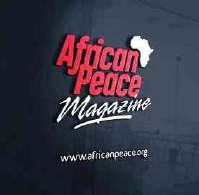

21
AFRICAN UNION

2023 AND BEYOND
The African union is a union consisting of 55 countries located on the continent of Africa as its members making it a continental union. Their mission was to hasten the process of integration on the continent while addressing multifaceted social, economic and political problems. It was founded on the 26th of May 2001 in Addis Ababa, Ethiopia and got launched on the 9th of July 2002 in Durban, South Africa. Important decisions of the African union are made by a semi-annual meeting of the heads of state and government of its member’s states who are referred to as the assembly of the African union. It was launched officially in 2002 as a successor of the organization of African unity (OAU, 1963-1999).
THE INTENDED AIM OF THE AFRICAN UNION INCLUDES TO;
Defend the sovereignty, territorial integrity and independence of its Member States; Accelerate the political and socio-economic integration of the continent; Promote and defend African common positions on issues of interest to the continent and its peoples; Encourage international cooperation. To promote and protect human and people’s rights in accordance with the African charter on human and people’s rights and other relevant human rights instruments. Promote sustainable development at the economic, social and cultural levels as well as the integration of African economies. Advance the development of the continent by promoting research in all
fields, in particular in science and technology. Also, invite and encourage the full participation of the African diaspora as an important part of our continent, in the building of the African union. And so many other aims.
Over the years the AU has been able to keep up with few of their aims. In the two decades that the AU has been in reign there has been different progresses and challenges encountered and are still currently in existence.

THEIR ACHIEVEMENTS INCLUDE;
Development of agencies to shape the agenda and decision in Africa and to actively participate in global affairs. Through the AU, Africa has been helped to develop into a regional bloc second only to the EU in its institutional development. As a result of this the Africa’s international agency has been strengthened significantly. Now, Africa speaks as one on diverse range of issues for the benefit of African needs and priority areas that ranges from, peace and security, infrastructure and energy, climate change, innovative development financing, training youth and women’s empowerment.
During the covid-19 pandemic, the response measures taken by the AU to combat the pandemic was commendable. According to recent Africa CDC data, Africa has received 945 million vaccines doses through various initiatives. To ensure widespread access to covid-19 vaccines’ across Africa.
22
Not to forget the creation of the African continental free trade area (AfCFTA) among others is the world’s largest free trade area bringing together the 55 countries of the AU and eight regional economic communities (RECs)
ALONG WITH THE ACHIEVEMENTS COMES CHALLENGES ACCORDING TO THE RECENT REPORTS;
The AU has been accused of being slow to act on the actions of recent coup makers. This contrasts with its outspoken stance in previous years, ostracizing military regimes in some African countries in the past years. It’s said that the recent resurgence of coup frequency may partly be explained as a consequence of the failure of democracy in Africa. It is has also been criticized for its lack of engagement with civil society in decision making. There is also the case of lack of funding for its operations.
AFRICAN UNION 2023
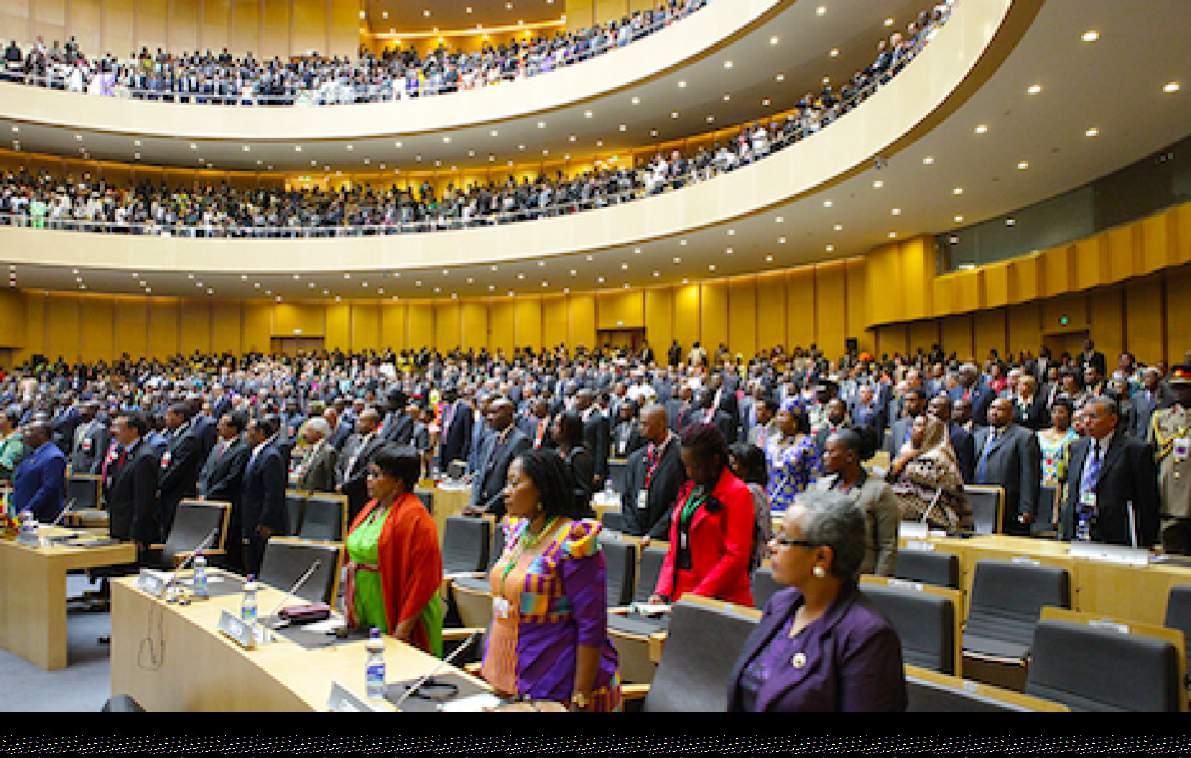
In a bid to respond to this situations, according to reports on the African union web page the year 2023 would usher in a new addition to the African union driving through humanitarian needs which concerns most African nations.
On 1 December 2022, The United Nations Office for the Coordination of Humanitarian Affairs (OCHA) in Partnership with the African Union, is said to host an event in Addis Ababa to launch the 2023 Global Humanitarian Overview (GHO). The GHO event in Addis Ababa will focus on Climate change and global food insecurity - key drivers of humanitarian needs. The event aims to provide an overview of humanitarian needs and funding requirements in 2023, call for generous funding towards next year’s humanitarian appeals, and amplify
the voices of affected people, particularly women and girls. This year’s launch is against a background of a rapidly changing humanitarian landscape in the global south. It is convened following an African Union Extraordinary Humanitarian Summit, and the Extraordinary Summit on Terrorism and Unconstitutional Changes in Africa, both held back-to-back in Malabo, Equatorial Guinea on 27 and 28 May 2022.
The Department of Health, Humanitarian Affairs and Social Development (HHS) of the African Union Commission (AUC), in cooperation with the United Nations Office for the Coordination of Humanitarian Affairs (OCHA).
As the reports read this is because; over the past decade, 1.7 billion people around the globe have been affected by extreme weather and or climate-related disasters, with people in Africa among the most affected. The relationship between climate change and food insecurity is indisputable. The spectre of climate change and other global environmental changes, such as extreme temperatures, excessive floods, powerful cyclones, and prolonged droughts, have and continue to raise concerns about achieving food security, especially in fragile contexts. Many climate scientists have called it a threat multiplier for hunger. Food security is diminished when food systems are stressed. That has become evident throughout 2022 because of increased armed conflicts and supply chain disruptions due to COVID19 and the war in Ukraine. The event aims to achieve the following objectives:
Promote the GHO (the most credible, current analysis of global humanitarian requirements, explaining trends and drivers).
23
Call for generous funding towards 2023 HRPs and other humanitarian appeals.
Amplify the voices of affected people, particularly women and girls.
Acknowledge the generosity of donors, strengthen commitment and support and promote effective and innovative tools of humanitarian financing.
THE WAY FORWARD TO BEYOND
The introduction of agenda 2063 as a development framework is the first step forward.
Agenda 2063 is a set of initiatives proposed and currently under implementation by the African Union. It was adopted on 31 January 2015 at the 24th Ordinary Assembly of the Heads of State and Governments of the African Union in Addis Ababa. The call for such an agenda was first made by the 21st Ordinary Assembly on 26 May 2013, 50 years after the foundation of the Organization of African Unity, as a plan for the next 50 years. The stated goals of the Agenda are economic development (including the eradication of poverty within one generation), political integration (in particular through the establishment of a federal or confederate United Africa), improvements in democracy and justice, establishment of security and peace on the entire African continent, strengthening of cultural identity through an "African

renaissance" and pan-African ideals, gender equality, and political independence from foreign powers.
The First Continental Report on the Implementation of Agenda 2063 was presented by President Alassane Ouattara of Côte d’Ivoire on 10 February 2020, marking the beginning of a biennial reporting cycle. It measures progress against a set of goals defined for the first Ten-Year Implementation Plan and was launched together with an interactive online dashboard showing progress in individual areas of the Agenda as well as geographical regions.
To achieve this, the agenda 2063 needs to expand its consultation with civil society and stake holders of member states, this would increase participation by member state citizens, tighten up accountability and improve the sharing of information. Funding for projects is also one of the biggest challenges facing the AU. It still depends on external funding for its own operations. A solution would be a enforcing institutional arrangement where members have to contribute funds and there are penalties for not doing so. This would enable the country leaders to sit tight on ensuring the development plan is achieved.
24


25
ENTREPRENUER OF THE WEEK

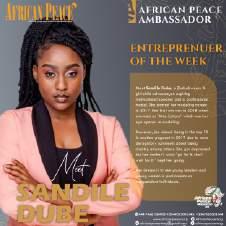

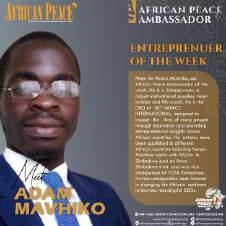





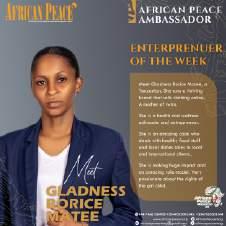
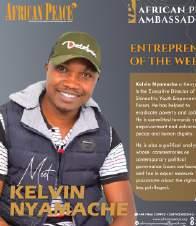
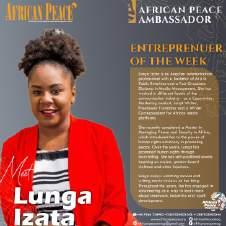

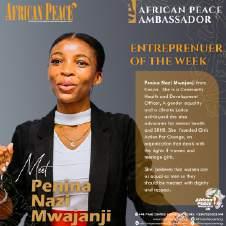

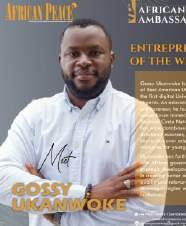




2022


A F R I C A N P E A C E A M B A S S A D O R S
26
LONDON





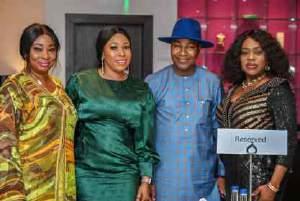









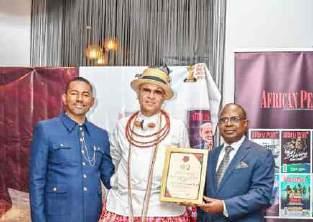




27




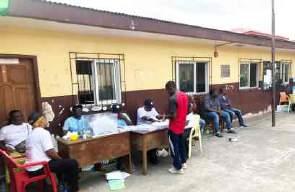
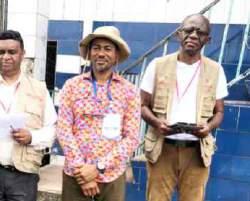





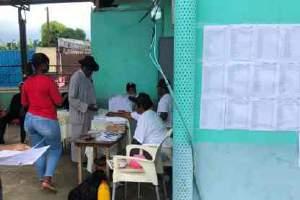

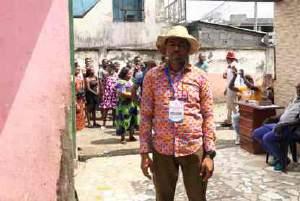


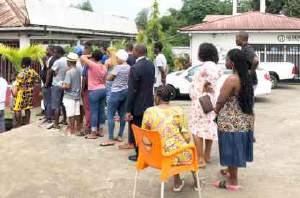
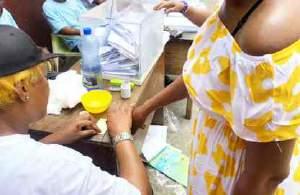

28


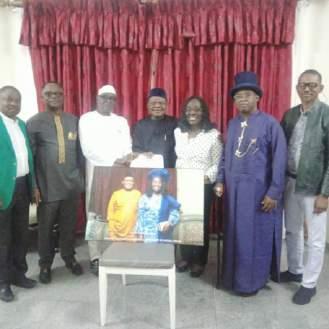
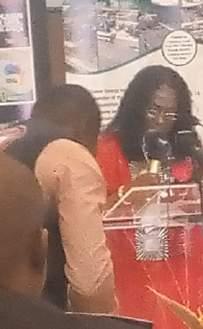

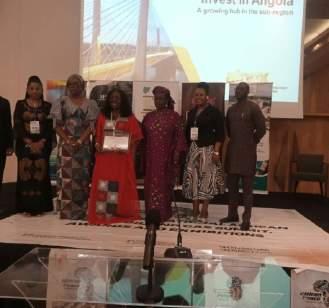

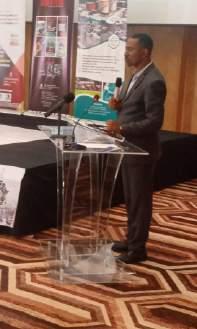
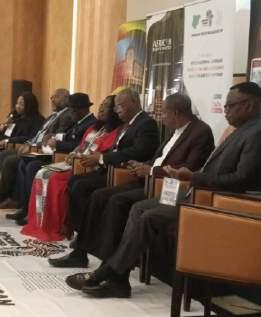


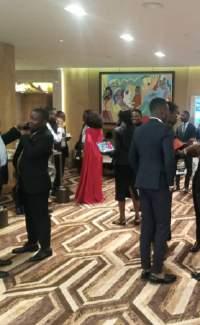
29





30




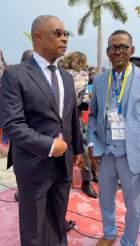
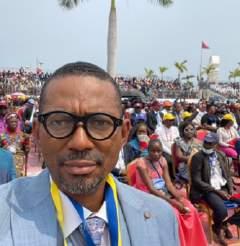

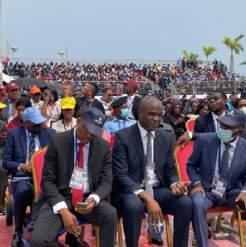








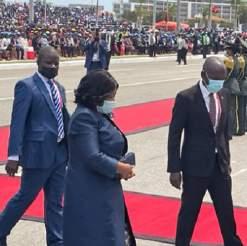

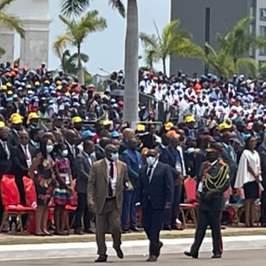

31
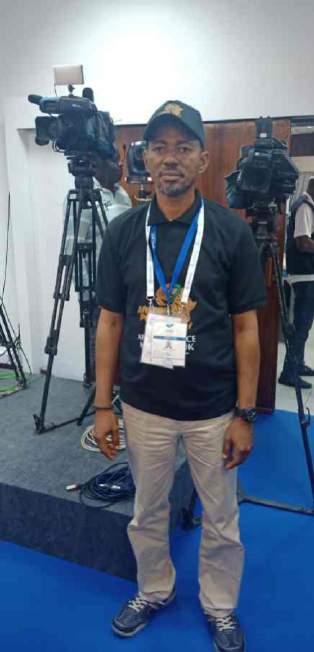


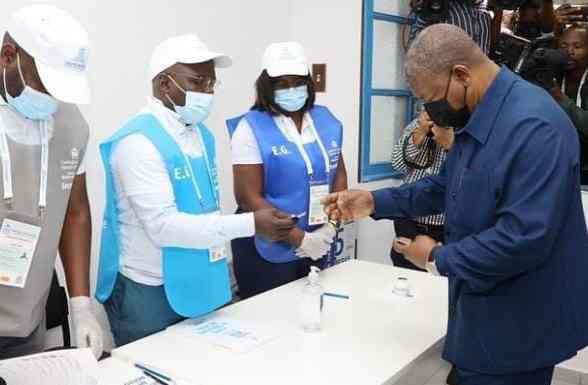
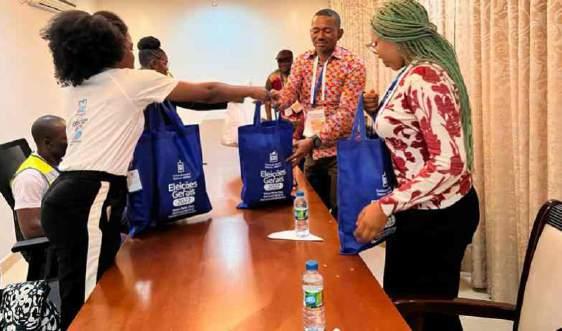
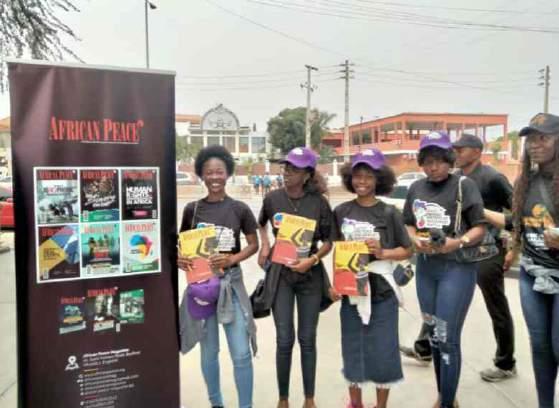
32










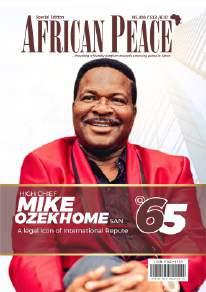
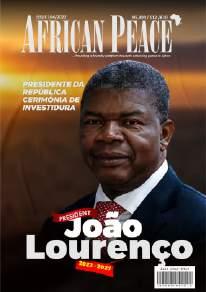
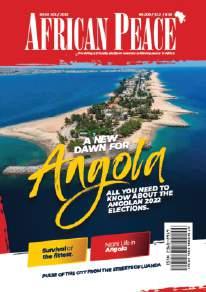


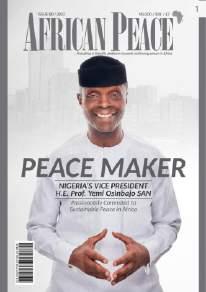
EDITION 2022 JANUARY EDITION / 2022 2022 MAGAZINE EDITIONS 33
MARCH

34



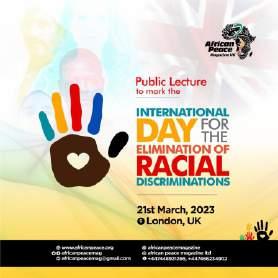
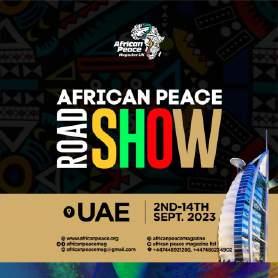
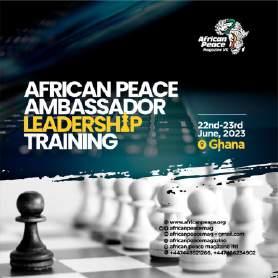


35 +447466234902; +2347025003543
AFRICAN BLOOD
Jewellery
Diamonds are a source of immense joy to those who can afford them and a bother to those who receive them as they are unique and naturally expensive stones. Diamonds in Africa formed millions of years ago when titanic force pressure and heat caused carbon below the surface of the earth to crystallize. They are also referred to as blood diamonds in Africa, due to the story behind their production.
The advent of the blood diamond also called conflict diamond, as defined by the United Nations, UN, is any diamond that is mined in areas controlled by forces opposed to the legitimate, internationally recognized government of a country and that is sold to fund military action against that government.

Experts argued that the illegal mining and sale of blood diamonds has produced billions of dollars enough to fund conflicts and different condescending conditions in various African nations.
Just like the time of colonialism, foreign miners move into the African diamond-producing nation
to explore the people and make them work hard to benefit the companies. Due to the lucrative diamond industry, some groups rebelled against the governments to take over the industry.
According to reports on blood diamonds in Africa from Indiana university page, the UN definition of blood diamonds was formulated in the 1990s, when brutal civil wars were being waged in parts of western and central Africa by rebel groups based in diamond-rich areas of their countries. Three specific conflicts in Angola, the Democratic Republic of the Congo, and Sierra Leone directed world attention to the destructive role of diamonds, though the problem arose in other countries as well. Rough diamonds mined in rebel-controlled areas were sold directly to merchants or were smuggled into neighboring countries, where they were merged into stocks of legitimately mined diamonds and then sold on the open market. Proceeds from diamond sales were used to buy arms and war matériel for the rebel groups, some of which conducted extremely violent campaigns that brought great suffering to civilians.

36
Worldwide concern arose over the entry of these gemstones into the huge consumer markets in the West, where purchasers were unable to distinguish conflict diamonds from legitimate gems and where the origin of the stones could not be verified. Diamond traders, for their part, became worried that growing revulsion against blood diamonds might lead to calls for a boycott of all the gems.
In 2000, the UN Security Council issued a report on the presence of conflict diamonds in world markets that specifically implicated De Beers Consolidated Mines, Ltd., the AngloSouth African Company that controlled about 60 percent of the global trade in rough diamonds.
The report also criticized the world's largest diamond market, Antwerp, Belgium, for not verifying the origin of the diamonds traded there.
Trade associations, therefore joined human rights groups and the UN in establishing the Kimberley Process, a certification scheme that in 2003 began to verify whether exporting countries' diamonds were conflict-free. Since then, as the worst of the African civil wars ceased and as central governments restored control over rebelheld areas, the share of blood diamonds in the global diamond trade fell from as much as 15 percent in the 1990s to less than 1 percent by 2010.
However, some human rights activists noted that those figures may be meaningless, reflecting only the UN's specific definition of blood diamonds as gems that fund rebellion against a country's government. Citing Zimbabwe as a specific example, observers pointed out that, even in countries certified as conflict-free, and officials of recognized governments can use their control over legal diamond operations to enrich themselves, preserve their power, or promote their associates often at the expense of diamond miners and
other workers, who can be treated with brutality and denied basic human rights. Abuse of the legitimate diamond trade in Zimbabwe prompted calls to redefine blood diamonds as gems whose trade is based on aggression or violence of any kind. Such a redefinition would expand the campaign against blood diamonds to some diamond-rich countries where the denial of human rights is common.
Years after the incident of the blood diamond, a film was acted on the illicit diamond market that fueled the Sierra Leone civil war, showing the inner workings of the trade and its effects on the country. The plot followed a diamond smuggler and an enslaved fisherman through their journey to find a rare diamond in hopes of escape and family reunification. The diamond trade within this story revealed that many sales of black market diamonds were funding terrorist militia groups that were trying to overthrow the current government.
It also revealed that the illicit trade of goods, smuggling, and forced labor during this time of civil unrest was being funded by diamond sales overseas. Without wealthy consumers of western countries, the Sierra Leone civil war would not have had the funding that it did. Consumers were unaware of where their purchases were coming from and had no idea of the implications that they caused. This specific market led to the establishment of the Kimberley Process in 2003, which certifies the country of origin of diamonds and prevents illicit sales of stones. This story helped reveal the inner workings of black markets and their implications on other markets. The film showcased the flow of blood diamonds out of Africa and supported the civil war, resulting in a mass revolution. Many consumers were unaware of the human cost of mining diamonds, which claimed many lives contributing to poverty and environmental devastation.

AFRICAN BLOOD 37
Jewellery
AFRICAN BLOOD
Jewellery
Although blood diamond revolves around fictional characters, the events are based on the real experiences of individuals in Sierra Leone during the civil war. The film depicts village attacks by rebel groups, the enslavement of Sierra Leoneans, the use of child soldiers, and illicit markets that are often ignored. The use of fictional characters allowed the narrative to bring awareness to the workings of the illegal diamond trade. The trade included the Revolutionary United Front, RUF, the chief rebel group that mined diamonds in Sierra Leone to support their actions against the government. The actions of the RUF created political unrest and eventually led to the creation of its party, which brought outrage to many human rights groups. According to PBS Online NewsHour, roughly 20,000 innocent people suffered bodily mutilation, 75000 were killed and 2 million fled Sierra Leone altogether.
It has been noted that illegal diamond markets take place around the globe, however, the injustice associated with the diamond trade on the African continent is nothing compared to the other places. Not only did the illegal diamond trade affect Sierra Leone, but affected other countries such as Liberia, The Ivory Coast, The Democratic Republic of Congo, and Angola.
Due to the smuggling of stones across the border, Sierra Leone lost millions of dollars in revenue from illegal exportation Reports have it that, after the civil war conflict, diamond revenues increased from $10 million in 2000 to $130 million in 2004. Sierra Leone lost mass amounts of revenue due to diamond smuggling and continues to do so. Diamond smuggling still occurs today and according to the United Nations in 2014, it was estimated that 140,000 carats of diamonds, with a retail value of $24 million have been smuggled out of the Central African Republic. This very real issue will continue due to weak regulation. Also due to the purchase of these
stones, rebel forces were able to continue their attempts to put the people in harm's way. The civil war between 1991 and 1999 claimed over 75,000 lives, caused 500,000 Sierra Leoneans to become refugees, and displaced half the country's 4.5 million people. It's clear buyers are unaware of the deadly routes taken to mine these gems, but are more concerned about receiving the products. Probably they would have tried to protest against the injustice.
The effect of all of these troubles resulted in child soldiers being brainwashed by the militants to fight the war, civilians were amputated by the rebels to stop them from voting for the government officials. The rebels pulled their weight further by indulging in the abduction, torture and rape of the young girls of the villages. Many were forced into sexual slavery and the spread of sexually transmitted diseases including an increase in unwanted pregnancies all as a result of the illegal trade of diamonds. Lives were lost and ruined and families are torn apart.
Many organizations are fighting against the promotion of illegal trade and the types of behavior that revolves around it but it is up to individuals who participate in it by buying these illegal products to make a difference.

It is obvious that Africa has had to suffer so much over what it can't afford to buy for itself People who can afford diamonds in Africa are those in the upper echelon. The need for an appropriate approach to the reform of the African diamond industry is essential.
The Kimberley Process is not going to clean up the trade alone. The United Nations General Assembly has encouraged the strengthening of the Kimberley Process to ensure it remains relevant. Hoping future attempts will help clear this exploitation.

38


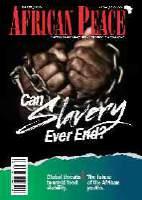
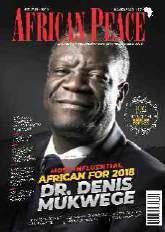
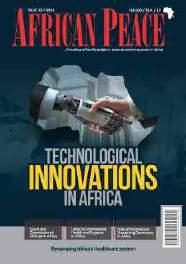

39
MAURITANIAN OIL
AND GAS SECTOR
H I D D E N O P P O R T U N I T I E S
Mauritania is a sovereign country in northwest Africa. Bordered by the Atlantic ocean to the west, Western Sahara to the north and northwest, Algeria to the northeast, Mali to the east and southeast and Senegal to the southwest.
Mauritania has extensive deposits of iron ore, which account for almost 50% of total exports. Gold and copper mining companies are opening mines in the interior. Oil was discovered in Mauritania in 2001 in the offshore Chinguetti field.
As reported by world atlas; according to the estimates of 2011, Mauritania’s oil reserves accounted for about 0.01% of the global oil reserves. The first oil discovery in Mauritania was in 2001 when Woodside petroleum discovered the Chinguetti oil field, which was estimated to contain 692,167,467 cubic feet of oil. Initially, Chinguetti produced 75,000 barrels of oil each day, but because of geological challenges, oil production soon decreased. In 2003, Woodside petroleum also discovered two other oil fields in Tiof and Banda. In 2005, another oil field, Tevet was discovered in the same area and it is believed that it would be developed as a satellite field of the Chinguetti. Woodside petroleum planned to invest $600 million in
Mauritania’s oil sector to develop the oil fields already discovered. However, the Mauritanian government and the company were involved in a dispute over the contract as the Mauritanian government claimed that the contract was unfair to the country. One of Mauritania’s biggest oil discoveries was in 2006 when roughly 950 million barrels of oil reserves were discovered in the Atlantic Ocean. After the discovery, the Mauritanian government planned to increase its oil production to 30,000 oil barrels per day, but by 2016, Mauritius produced only 6,000 barrels of oil each day.
About three years ago in 2019, oil and gas explorer Kosmos energy made one of the largest discoveries of natural gas in recent years in waters offshore Mauritania, where it sees the potential to extract 50 trillion cubic feet of gas .
In other words, Mauritania is on the verge of becoming a major global gas producer and one of the most important in Africa. Gas reserves are estimated at 1400bn cubic metres. In its first phase, lasting until 2025, the field will produce 2.5m tonnes per year. This will double in the second phase, for which discussions will begin this November, and rise to 10 million tonnes per year in its third phase.

40
Covering 33,000 sq km, the gas field contains 1400bn cubic metres of reserves. This suggests, according to BP, a production potential of 30 to 50 years from the fields. “In this 10-year period, from today to 2030, priority is given to exploiting the country’s full gas potential,” said Abdessalam Ould Mohamed Saleh, Mauritania’s Minister of Oil, Mines and Energy, in June 2022 at the African Energy Forum in Brussels.
There is also the Banda field, discovered 20 years ago, which has had several partners and many upsets. Last December, seven years after the departure of the last operator, the British company Tullow Oil, Mauritania signed a non-binding memorandum of understanding with the American company New Fortress Energy to produce electricity from gas by 2024, in order to supply the local markets via the 180 MW Mauritanian power plant of Somolec and a new 120 MW plant. More than 1 billion barrels (bbl) of oil and 40,000 billion cubic feet (bcf) of natural gas await extraction. These discoveries have rejuvenated industry interest in the Senegal-Mauritanian basin.
Mauritania has signed a gas exploration and production sharing agreement with British oil company British Petroleum (BP) and US-based Kosmos Energy in a field located in Mauritanian Atlantic waters. According to EFE news agency, Mauritania will start producing liquefied natural gas for the first time from November or December 2023, according to Mauritania's Oil Minister Abdeslam uld Mohamed Saleh. The minister said the first production will take place at the Grand Tortue Ahmeyim (GTA) gas plant in the Gulf of Guinea, located offshore on the Mauritania-Senegal border. The field, considered one of the largest in the Gulf of Guinea, could produce up to 10 million tonnes of liquefied natural gas per year at a total cost of $4.6 billion. According to the Mauritanian minister, GTA is one of the deepest projects in the world and requires the use of new technologies that will be used for the first time
Mauritania's Ministry of Petroleum, Energy and Mines said in a statement that the field, named "BirAllah", contains reserves of almost 2.26 billion cubic metres of gas, adding that the Mauritanian
state's share of revenues will be 29%. It explained that production from the field in a timely manner provides sufficient gas resources to achieve gas liquefaction options for Mauritania to become a future gas producer. Engineering studies for the project are expected to be completed within 30 months, after which a final investment decision will be made in the first half of 2025.
HIDDEN OPPORTUNITIES FOR MAURITANIA
Despite an abundance of natural resources, including iron ore and petroleum, Mauritania remains poor; its economy is based primarily on agriculture, livestock, and fishing. One of the significant challenges facing the Mauritanian economy is the country high unemployment rate.
However, the evolvement of the oil and gas industry revenues will drive Mauritania’s development. The agreement signed between the Mauritanian government and the oil and gas companies would accelerate economic growth, enable the creation of jobs, contribute to poverty eradication, infrastructural development and give the Mauritania economy a boost.
If exploited, such discoveries could transform the economies of both nations, bringing much needed revenues. The volume of gas potentially trapped in the area is equal to around 8.9 billion barrels of oil equivalent, which could make it one of the largest hydrocarbon discoveries in the world since italy’s Eni discovered the 30 Tcf Zohr gas field offshore Egypt in 2015.
Even though according to the Ousmane Mamadou Kane, the Minister of Economic Affairs and the Promotion of the Productive Sector, as regards the agreement. He emphasized that “this will not change the economy overnight. What is expected is first of all the injection of a lot of resources into the Treasury and the Central Bank, which will make it possible to face up to the enormous needs of basic education, road infrastructure, water, sanitation and energy, which the country needs.”
Industry experts believe that, with the start of the exploitation of the discovered gas reserves, Mauritania will become the third largest gas exporter on the African continent after Nigeria and Algeria. Which would put them at the forefront of international export of oil and gas.
41
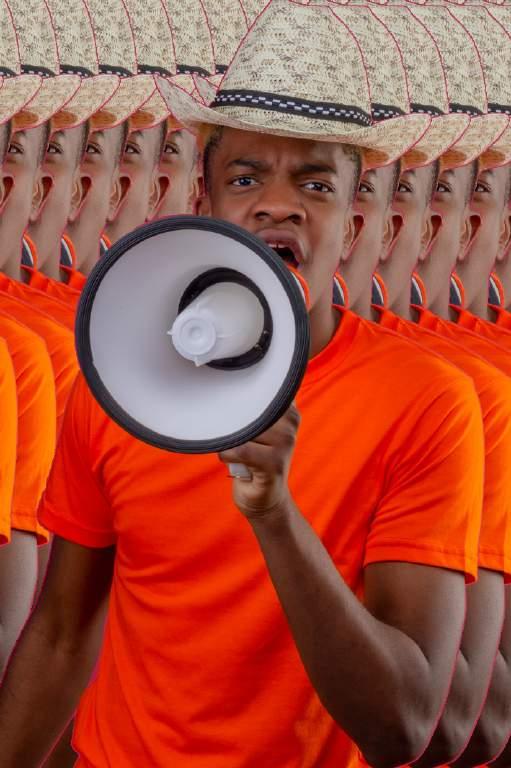
ADVERTISE WithUs Your Goods & Services through the pages of our magazine editions To our over readers 50million You can reach your audience in no time through our various platforms 42 +447466234902; +2347025003543
THE GREAT
DISCONNECT
BETWEEN AfCFTA AND AFRICAN CEOs

The African continental free trade area (AfCFTA) is the world’s largest free trade area bringing together the 55 countries of the AU and eight regional economic communities (RECs). It was established in 2018 by the African Continental Free Trade Agreement, which has 43 parties and another 11 signatories, making it the largest free-trade area by number of member states, after the World Trade Organization, and the largest in population and geographic size, spanning 1.3 billion people across the world's second largest continent. The Africans unions’ long term development strategy for transforming the continent into a global powerhouse eliminating trade barriers and boosting intra-Africa trade. The success of the AfCTFA could potentially lift 30 million people out of extreme poverty according to the estimation made by The United Nations Economic Commission for Africa.
According to Wikipedia; the agreement founding AfCFTA was brokered by the African Union (AU) and signed by 44 of its 55 member states in Kigali, Rwanda on 21 March 2018. The proposal was set to come into force 30 days after ratification by 22 of the signatory states. On 29 April 2019, the Saharawi Republic made the 22nd deposit of instruments of ratification, bringing the agreement into force on May 30; it entered its operational phase following a summit on 7 July 2019, and officially commenced 1
January 2021. AfCFTA's negotiations and implementation are overseen by a permanent secretariat based in Accra, Ghana. Under the agreement, AfCFTA members are committed to eliminating tariffs on most goods and services over a period of 5, 10, or 13 years, depending on the country's level of development or the nature of the products. General long-term objectives include creating a single, liberalized market; reducing barriers to capital and labor to facilitate investment; developing regional infrastructure; and establishing a continental customs union. The overall aims of AfCFTA are to increase socioeconomic development, reduce poverty, and make Africa more competitive in the global economy.
On January 13, 2022, AfCFTA took a major step towards its objective with the establishment of the Pan-African Payments and Settlements System (PAPSS), which allows payments among companies operating in Africa to be done in any local currency.
The AfCFTA is set to be implemented in phases, and some of the future phases still under negotiation. Phase I covers trade in goods and trade in services. Phase II covers intellectual property rights, investment and competition policy. Phase III covers ECommerce.
43
The African Continental Free Trade Agreement represents a major opportunity for countries to boost growth, reduce poverty, and broaden economic inclusion. Under AfCFTA, extreme poverty would decline across the continent—with the biggest improvements in countries with currently high poverty rates.
The World Bank report is designed to guide policymakers in implementing policies that can maximize the agreement’s potential gains while minimizing risks.
Creating a continent-wide market will require a determined effort to reduce all trade costs. In general, this will require legislation and regulations to enable the free flow of goods, capital and information across borders; create competitive business environments that can boost productivity and investment; and promote increased foreign competition and foreign direct investment that can raise productivity and innovation by domestic firms.
AFRICAN CEOs

When the plan for the African trade area agreement started, it seemed like another ambitious project typical of African leaders
with no clear-cut implementation strategy or the intention to execute it at all. Knowing how African leaders tend to make plans with no actual intention of making it work.
However, since the announcement progress has been made. For some time, African leaders united to achieve a common goal, regardless of affiliation, individual, or political interest.
African CEOS expressed optimism about their business and economic growth over the next 12-18 months after its launch. A new survey of African CEOs from 46 countries was conducted by PAFTRAC, the Pan-African Private Sector Trade and Investment Committee, found that found that CEOs were confident that their businesses will grow in the following years.
The CEOs believe that the global recovery led by greater demand will drive Africa's economic recovery. Interestingly, their positivity stems more from their faith in international and regional trade strategies and agreements such as enhancement of trading opportunities through AfCFTA, rather than as a result of national economic recovery strategies like ease of lockdown restrictions or better national business climate.

44
Commenting on the survey, Pat Utomi, Chair of PAFTRAC, said, "The positive sentiment expressed by survey respondents demonstrates the potential of the AfCFTA and the eagerness of Africa's private sector to take advantage of the market access opportunities it offers. The commencement of trading under the AfCFTA agreement on January 6th represented a significant landmark in the agreement’s short but impactful history. It signified the beginning of realizing a better future for Africa and the African Union agenda 2060.
THE DISCONNECT BETWEEN AfCFTA AND AFRICAN CEOs
Just like other developmental policies, the AfCFTA has had its fair share of challenges. It has been a year since the African Continental Free Trade Area (AfCFTA) launched. Touted as a new dawn, a solution to unlock intra-African trade, investment, and industrialization, the scheme has had a quiet first year.
These challenges have proven to be a cog in the wheel and have stalled a speedy and full implementation of the agreement. Due to cases of international policies, government bureaucracies and economic downfall
resulting from the covid-19 pandemic have further affected the full implementation of the agreement in all African countries, not to forget lack of infrastructural capacity to combat smuggling across the border.

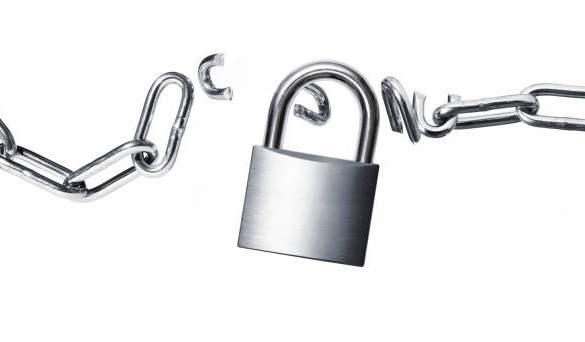
This and more has affected the businesses which makes it a bother for the African CEOs, several of the experienced huge losses due to the pandemic and inadequate provision to cater for such losses on the part of the African union. However, the leadership of the AfCFTA has taken the bull by its horn by ensuring all hands are on deck to wade through the challenges and ensure the achievement of prosperity for all Africa.
All in all Africa can redeem itself from the extreme poverty that has plagued the continent and set its citizens on a path to economic prosperity Even though the challenges are manifold and might take a long while to find all the solutions to them. However, this won’t happen unless every relevant stakeholder places the continents agenda over the elites and individuals selfish interest.
45
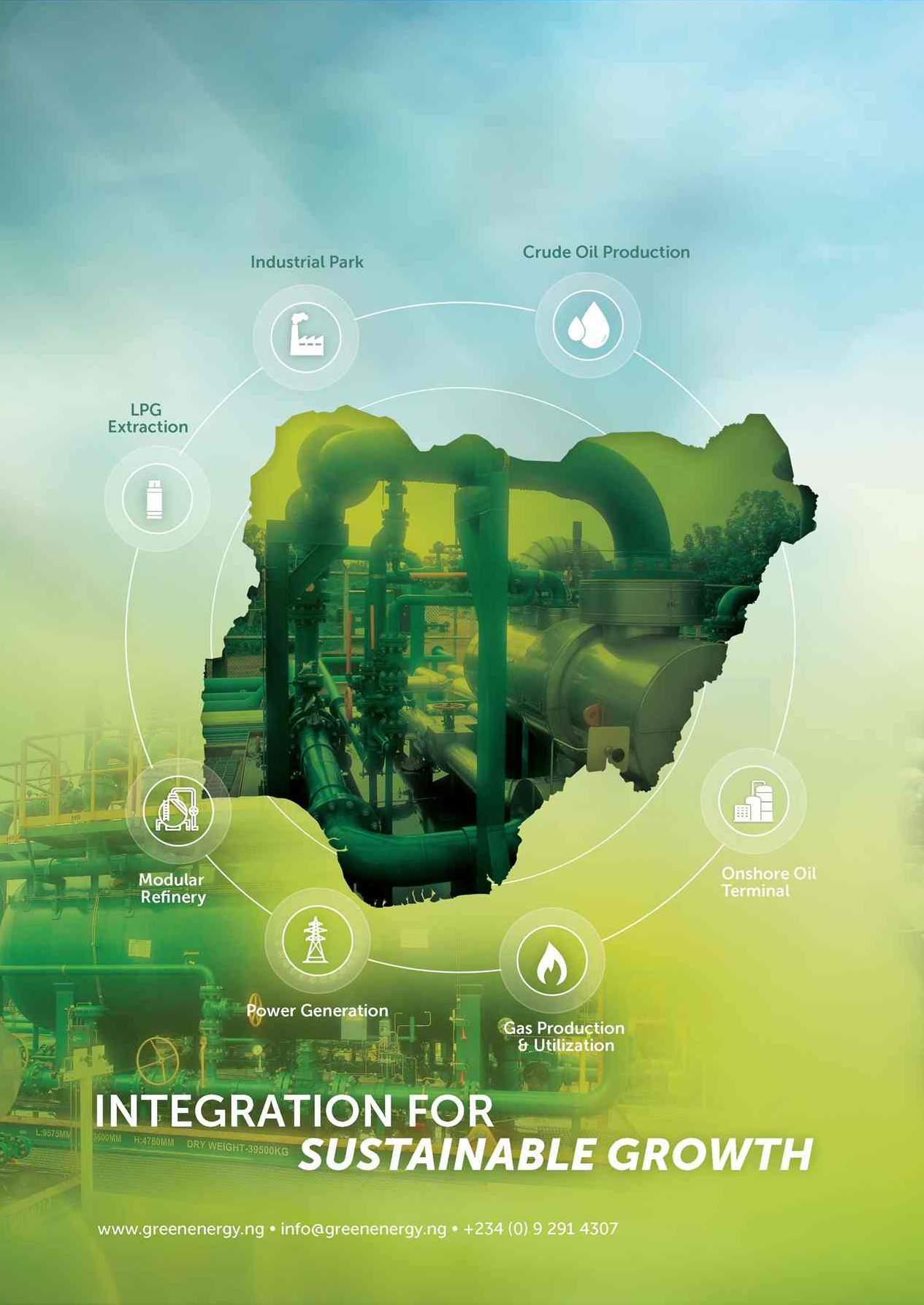
46
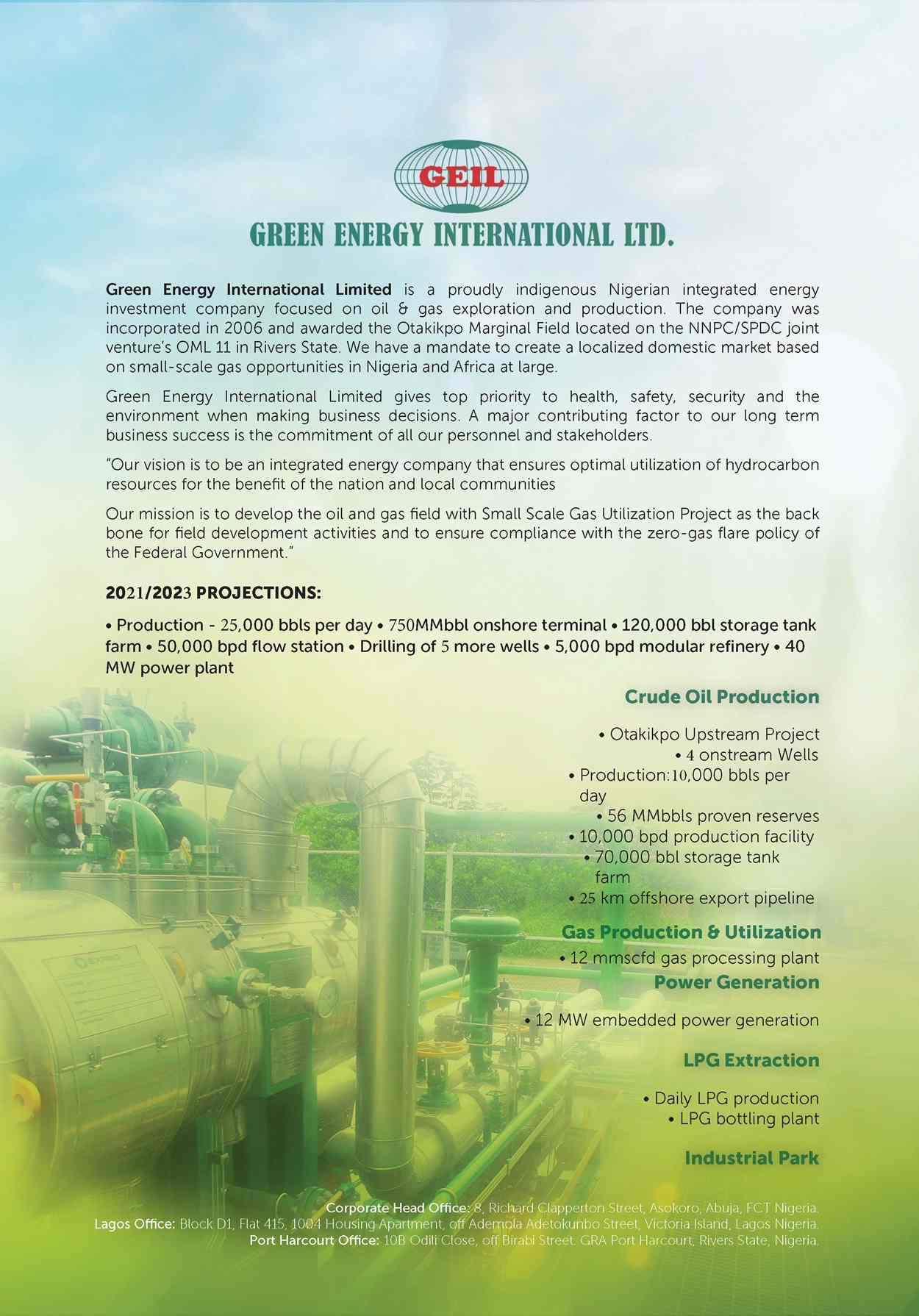
47
CULTURAL FESTIVALS IN FOSTERING UNITY AMONG MALAWIAN TRIBE'S Influence of
 By Patrick Msauka Kawonga
By Patrick Msauka Kawonga
Malawi is blessed with cultural biodiversity as most of the tribes are Bantu, a broader ethnicity, encompassing peoples who speak Bantu and one of the largest ethnic groups in Central and Southern Africa.
Christianity is the most prevalent religion in Malawi, though most inhabitants follow a mix of Christianity and traditional tribal belief systems. For several years cultural festivals in Malawi have greatly influenced its citizens to live on peaceful and also boost the social-economic development of a country.
This is just because different ethnic groups in the country have been able to preserve their cultural identity for the growth and development of tradition as these festivals aims at supporting unity amongst diverse tribe's through the events.
However the cultural festivals have been the most effective way for communities to flaunt their cultural expressions. Besides that, the festivals are of economic value to the communities in which they are hosted. As a result, they constitute an economic activity whose importance to the economic development of the host communities is immense.
Speaking in an interview Senior Chief Kachindamoto said, diverse traditional celebrations in Malawi have promoted the bonds and acceptance among tribal groups in the society.
"In addition, the events have boasted socialeconomic development of the country in such a way that ethnic groups have been able to showcase culture uniqueness to the world in order to support tourism industry for the nation," observe Senior Chief. She said traditional leaders have played a vital role in disseminating peaceful and unity messages to their subjects, during festivals so that society enjoys freedom and contribute to various developmental projects carry out in their areas.
"Apart from that, chiefs are custodians of culture in the society and they must obey diverse ethnic uniqueness for each tribe so as to build unity in the country", She said.
Kachindamoto stressed that, she always shows up to events for various ethnic tribes in her area in order to give them the support and to build unity among themselves.
48
"I urged my fellows, to be model by respecting other traditional cultural festivals in order to continue leaving peace and facilitate develop their communities," noted Ngoni Chief.

Commenting on the matter Executive Director of Culture Heritage Foundation, Dr Opson Thole said, cultural festivals are better by a specific ethics groups because it helps to build towards one language among themselves during the celebrations. In addition he said, it has assisted them to share the resources within that particular cultural group and chiefs have acquired knowledge on how to respect one another according to their hierarchies.
"Festivals have helped in building people to have self-identities and sense of belonging to a larger community. Furthermore, local communities have taken their responsibilities of educating their own children on the important of cultural individualities”, Thole said.

He said, apart from that, culture is a strong tool because it gives people a pride. So without culture and heritage no nation can get united and developed economicallyeconomically. According to the Social Commentator, Wonder Mkhutche, culture is very important in social-economic of any country because it's where the nation is being built-up on as the citizens tries to connect themselves by appreciating their traditional values. So cultural festivals remind various ethnic groups on the values it has lost and also appreciate them so as to build a nation.
Celebrations have improved the welfare of women and children in the society. In addition, cultural practices have reminded tribes on the basic impact of its own traditional values and respecting other cultural events, Mkhutche explains. He said the country needs to keep on hosting these cultural festivals and to have a single recognizable calendar for the events so that the people can interact easily as to avoid dividing the nation as diverse ethnic group conduct them own their own.
The Senior Lecturer in the Department of History and Heritage Studies at Mzuzu University, Dr Harvey Banda said, Malawi must take culture seriously and one of the ways is to inculcate culture in the education curriculum and Children from a very early stage of their lives should learn about their cultures and traditions.
“This must be learnt at all levels, primary and secondary schools and also in the colleges and universities, especially under the relevant humanities and social sciences programmes. In addition to stories that these children hear from their uncles, aunties, and parents, they also need to supplement this with knowledge from formal education in schools," Banda said.
He stressed that, Malawi is divided into many groups based on culture, ethnicity and traditions. These divisions are a source of not just socio-economic, but also political instability. However, whenever there is peaceful co-existence between and amongst these cultural groupings, the country is on a sure road towards socio-economic development.
49
Banda said, each cultural and ethnic grouping should be allowed to operate freely and observe their cultural traditions. This is what is currently happening in Malawi. Several cultural and heritage groupings have come up and each one of them is allowed to hold commemorations and celebrations of their culture and heritage. This is a source of cultural stability which, in turn, is a source of socio-economic development.
“Development in a country takes place at two levels or fronts, local or community level and at national level. At local level, what is dominant is rural development or rural growth. Here players include farmers and small-scale businessmen and women. However, these belong to various cultural groupings, for example, the Lhomwe, the Yao, the Tumbuka and the Ngoni, in the case of Malawi. A vibrant culture is a foundation of development at this local level," He explains.
Banda said, as people are observing their culture, there is vibrant trade in various products and these are agricultural goods and other services. In Malawi there is vibrant itinerant trading activities, for instance, periodic markets, popularly known as misika ya kabwandire in Tumbuka of northern Malawi. This vibrance is a result of active and independent cultural activities within the various cultural and heritage groupings. At national level, the various players at the local level eventually contribute to development at the national level.
He said, the government of Malawi should create a conducive environment in which the various cultural and heritage groups can
operate freely without state interference. Currently, the cultural landscape has been meddled with politics. In fact, since 1994 almost everything in Malawi is politicised, for instance, agricultural production, cultural festivals and traditional authorities.
“Successive democratically elected governments have for many years abused the appointment and promotion of local chiefs, using this to gain political mileage. The same interference is seen during cultural commemorations and festivities. These are an annual event where each cultural grouping commemorates and celebrates their culture and traditions. Instead of these functions being independent of the ruling and opposition political parties, the latter are seen to be interfering by overshadowing these events for their own selfish political agendas. It is time these political parties concentrated on politics and left these cultural functions alone, Banda noted
He said, much as preservation of cultures and traditions is important for posterity, politicizing the cultural events and festivities distorts the way people think and look at themselves. People start looking at themselves as belonging to an ethnic grouping and not to the state or country. This, once unchecked, would be detrimental to the smooth running of the country and to socioeconomic development of the country.
Banda pointed that, the government must make public statements that these cultural and ethnic groups should put the state and patriotism first and everything else second. In fact, this should be part of the awareness messages by the leaders of the various cultural and ethnic groups.

50
"The various cultures enhance cultural diversity which is a precursor to cultural and socioeconomic development, especially at the local or community level. Each cultural grouping feels important and part and parcel of the heterogeneous Malawian society. This later on promotes harmony and peaceful co-existence among cultural groups. It is this peace that is a precursor to socio-economic development at the national level, He said.
Banda said, the Malawian society is a heterogeneous society; it is a sum total of the various cultural elements, for instance, the Ngoni, Tonga, Yao, Chewa and Lhomwe. This promotes cultural and ethnic identity of these groupings. At the national level, the identity, culture, and heritage of Malawians is emphasized by these vibrant cultural and traditional groupings.

Commenting on the matter, Minister of Culture and Tourism, Dr Micheal Usi said, culture has been repositioned from a social enterprise to a potential driver for economic development. In this regard, Malawi 2063 looks at culture as a tool for generation of income among practitioners of culture, for creation of economic opportunities of the local communities where cultural products and services are offered, as well as economic opportunities for operators in other sectors of the economy like tourism.
“Culture is also a tool for job creation. Various aspects of culture can be packaged and distributed for income generation. The offering of such services and products does in a greater way to create jobs for many people. Think of services and products like local cuisine, music and dance, film making, festivals, heritage sites, cultural souvenirs produced from indigeneous knowledge like basketry and other representations of culture. Those offering such
cultural products and services recruit othersothers", Usi said.
He said, it is widely acknowledged that culture has potential to support a number of sustainable development goals (SDGs). For instance, through culture, they can create sustainable jobs. Those jobs would engage women and girls, the disabled, and marginalized groups which would bring about inclusive economic growth as per SDG8. This is because culture is an easily accessible resource, regardless of education or social status.
“I will give you an example of an individual who cannot walk, but is able to sing traditional songs, and is hired and paid to perform at events. And you may have seen those who cannot use their hands because of disability but are brilliant visual artists. We can also create women groups in communities around hotels and resorts, and strike agreements with those resorts that these groups should be presenting cultural performances on weekends, Usi explains
He said, they are empowering the marginalized and the underprivileged and ensuring that they are achieving inclusive economic growth. Ultimately, this feeds into other SDGs such as SDG10, which talks about ending inequalities, and SDG1 which talks about ending poverty.
Usi stressed that, social cultural aspects inform the various mindsets that people have, and all development efforts start and end with mindset. If citizens have a poor mindset, they will not be able to achieve any sustainable development. There is therefore a need to create the right culture within all social and business settings to ensure that the people have the right mindset for development and that they are on the right path to sustainable development.
51
“For example, our struggles with the vices of corruption are a result of a mindset that we have created as a culture. There are those within our society who have accepted corruption as a norm. We lack positive and deep-rooted values, which can stand against corruption. Other countries have a strong culture for public service and integrity, and these contribute to their efforts in achieving sustainable development. As guided by the Malawi 2063, we can turn around the poor mindset and negative cultural values to help develop Malawi, He said.
Usi said, there is need to look at the grassroots, the communities on the ground and the inter-generation dynamics of culture. There is need to engage the local communities so that cultural expressions and other forms of heritage are revived at local community level.

He pointed that, sustaining culture starts with teaching young ones on the importance of preserving the cultural values. Especially now people are living in the global world and they are exposed to foreign cultures, so it is important that people begin to inculcate values in their children. In addition, education curriculum needs to be the conduit for passing culture to the children. Apart from that, there is need to promote the habit of documenting culture. There is also need to support research and put it in documents, as well as other mediums that can easily be accessed by everyone.
“Culture is an essential component of sustainable development in the country because it is a source of identity, innovation and creativity for the individual and community. On the other hand, it is an important factor in building social inclusion and eradicating poverty, providing for economic growth and ownership of development processes, he said.
Usi said, the society is also key to any meaningful development. Any development should be planned
with full involvement of the people in order to get their full support and address the issue of ownership. If developmental trajectories are not holistic and inclusive they fail to be sustainable.
He explains that, the children need to be taught the values of ethics, the values of public service, and the values of integrity. In this way, they will be growing up knowing that corruption is a vice that ought not to be entertained. They will grow up knowing that they need to take care of public property. In addition, they will create a responsible citizenry. So there is need to define what are values are as a people, and pass these to the young ones, so that they should be growing up believing in those.
“Culture has a great potential to support the country’s development efforts. I will give an example of a study by the National Statistics Office in 2013, which found that the cultural and creative industry alone contributes 3.4 percent to the country’s GDP. We therefore need to utilise this potential, by among other things promoting financing and investment into the sector to support innovation, Usi said.
He stressed that, there is need more infrastructure to create the necessary spaces for the presentation and monetization of culture. This also goes to the issues of policy alignment. Normally, others look at culture as having no value to national development. This is not true. Arts and culture can create jobs, and can promote economic growth. So there is need to start projecting the sector from an economic perspective, whereas culture is seen as a driver for income generation, job creation and economic empowerment. The Malawi 2063 has done that but as a nation there is need to translate this into action on the ground," observed.
African need to use the culture grouping in prompting peace and unity to achieve social and economic development.
52
Regular Physical Body Fighter Exercise As A Depression
Let’s talk about regular physical body exercise as a depression fighter.

Depression puts one in a very low mood and often makes one inactive, moody and probably tired in most cases; but physical body exercise will always come to the rescue. All you need to do is to get up and get going, yes move that amazing body and get it active. Have you tried yoga, cycling, biking, walking and dancing?




Get active and get yourself on track again. Physical exercises such as swimming, walking, aerobic classes; dancing and those I mentioned earlier are highly therapeutic.



If your mood swings regularly please inculcate some touch of physical exercise to your daily routine. If you do not have a space at home please try “jumping jacks” and staircase hacks.
Exercise helps to clear your mind especially yoga. Try it today or tomorrow, do not procrastinate just try it and come and thank me.
Let’s go positive and rebrand our lifestyles, let’s help our mental health, let us exercise and clear our minds!!! Please while exercising; do not forget to do the ones you can.
53
Amarachi Mbanaso

54 �10/$12 N5000 Email: africanpeacemag@gmail.com www.africanpeace.org SUBSCRIPTION ORDER FORM TEL: +44 7466 234902; +234 803 397 5746 / Email: africanpeacemag@gmail.com / www.africanpeace.org

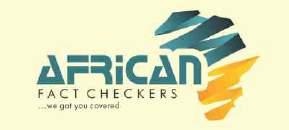


55
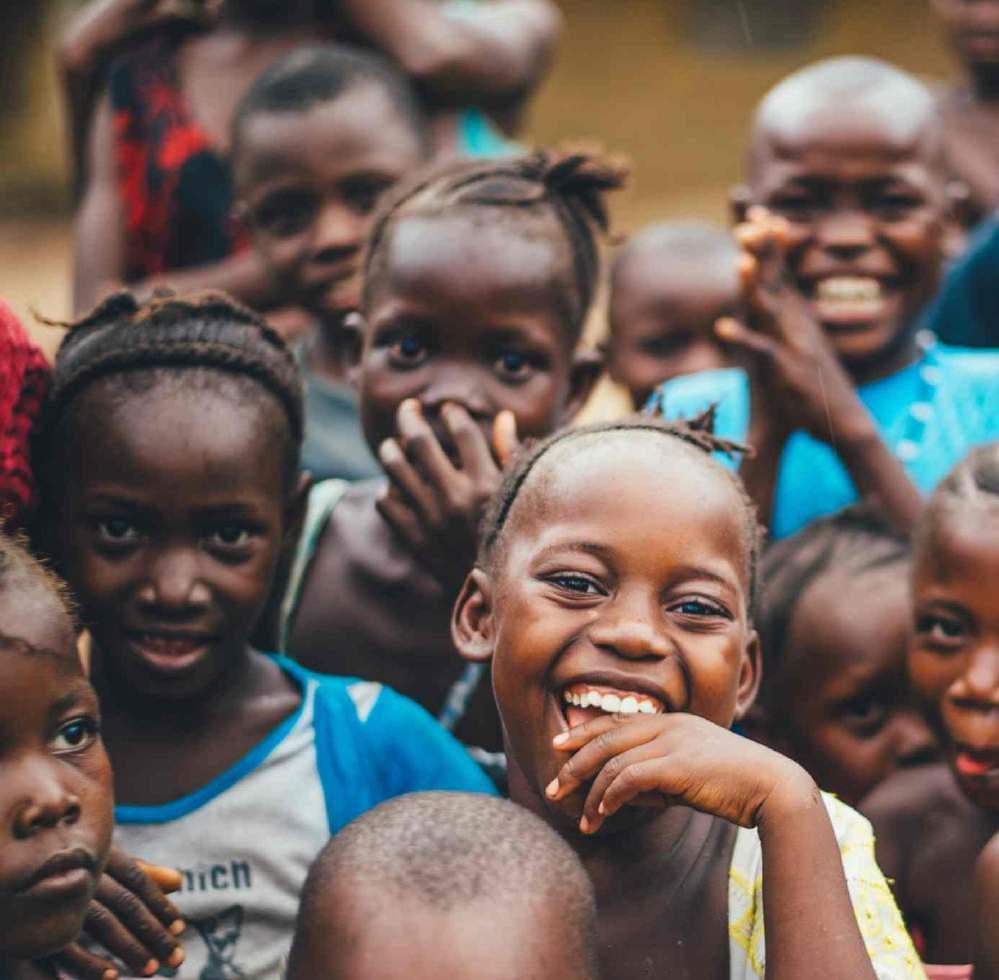
56


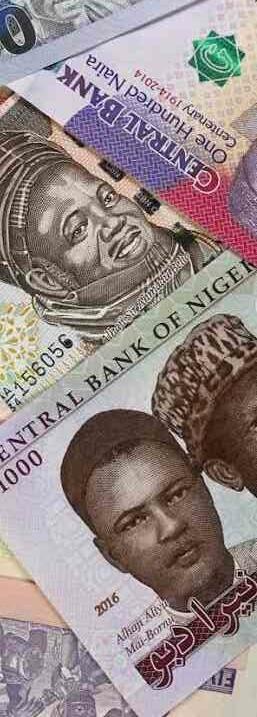
57
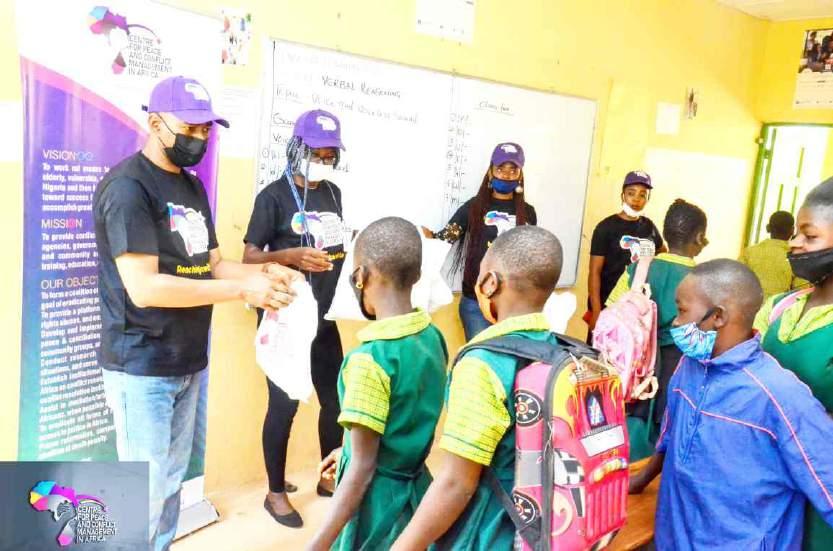
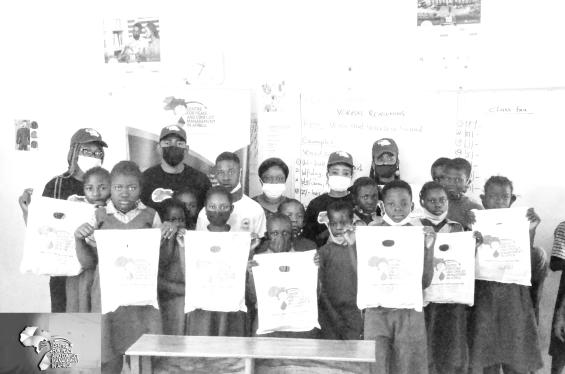



58
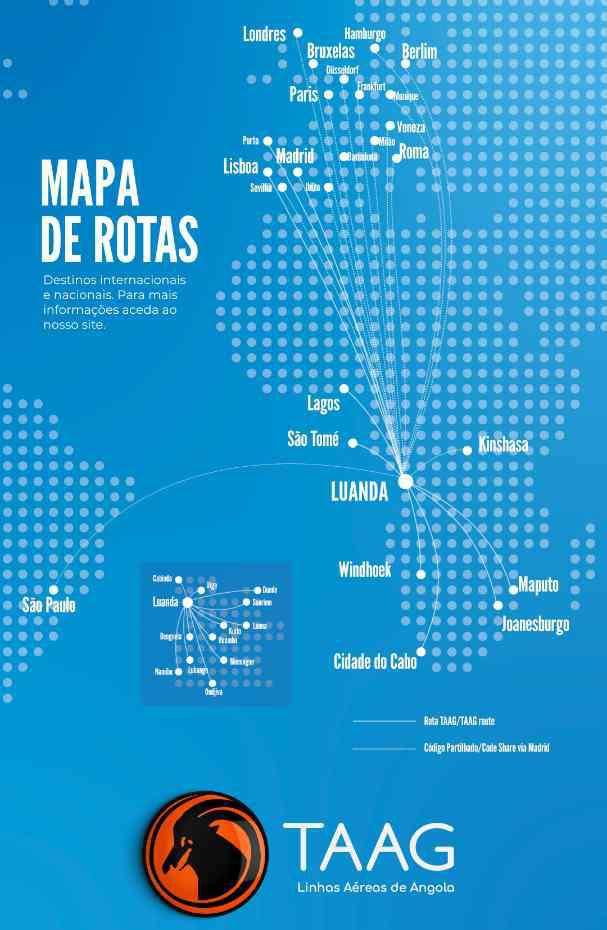



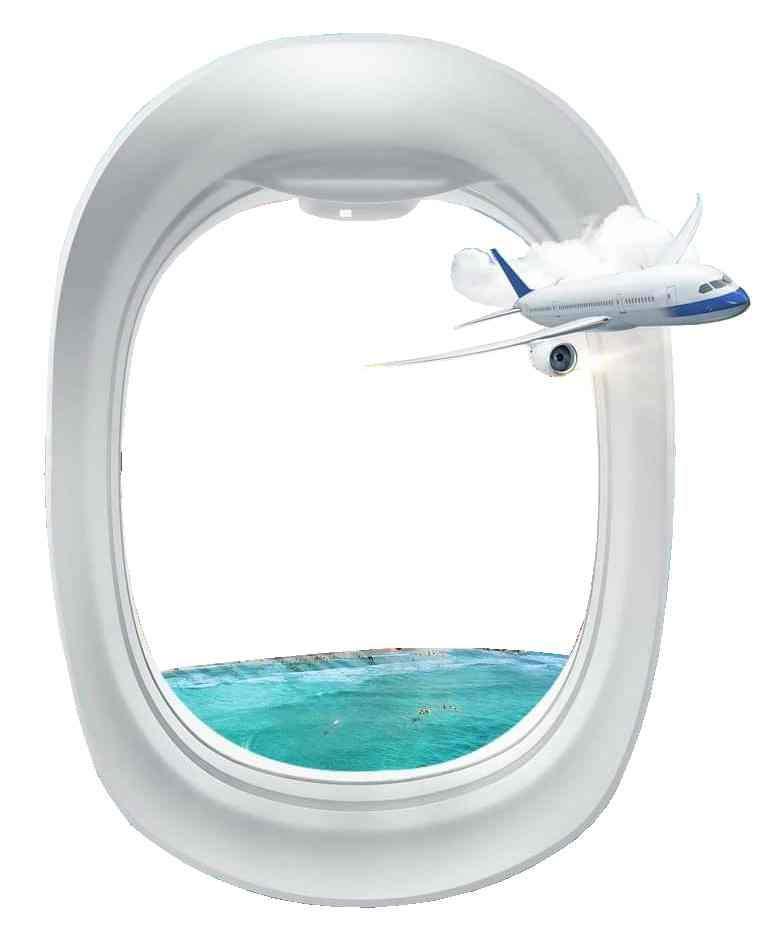




























































 Wife of Akinwunmi Adesina President of African Development Bank
Wife of Akinwunmi Adesina President of African Development Bank


































































































































































 By Patrick Msauka Kawonga
By Patrick Msauka Kawonga


































